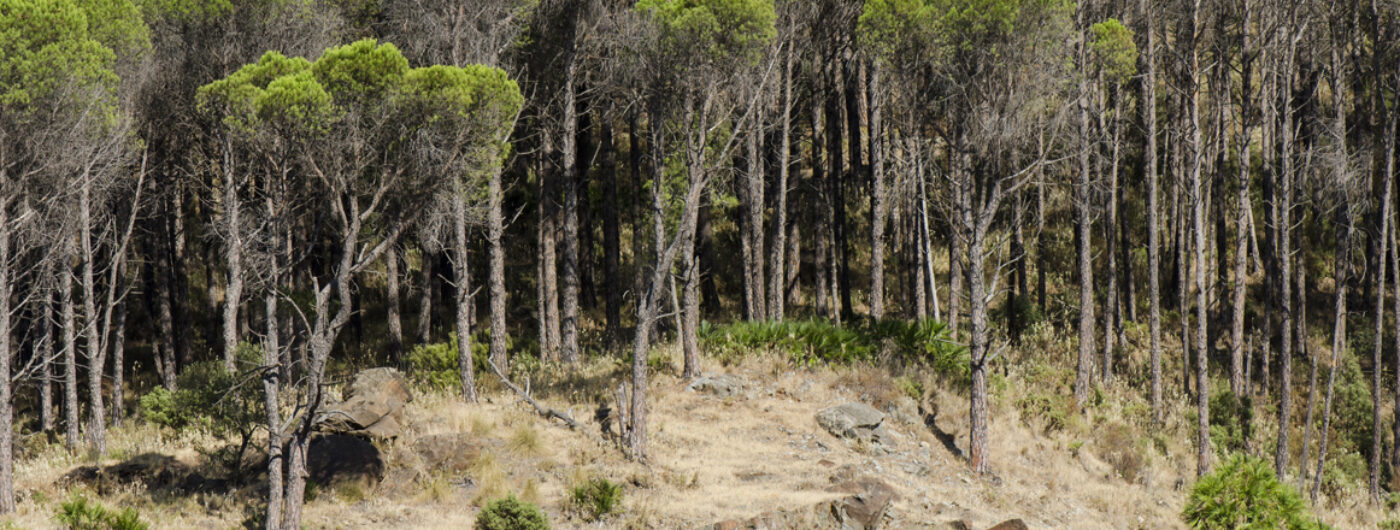
Environment Day: UfM spearheads efforts to restore Mediterranean landscapes and combat desertification
- The Mediterranean region is home to over 80 million hectares of degraded land. More than 400,000 hectares of forests are burned each year and at least 16 animal and plant species are at risk of extinction due to environmental threats such as climate change.
- Drylands cover over a third of Mediterranean EU countries, most notably in Spain and Cyprus. In the MENA countries, only 5% of land is suitable for agriculture, a situation that is particularly critical in Libya, Algeria, Egypt, and Jordan. As a consequence, limited fertile soil and challenges in reclaiming land hinder agricultural expansion.
5 June 2024, Barcelona, Spain. On World Environment Day, the Union for the Mediterranean (UfM) reaffirms its commitment to restoring Mediterranean landscapes, combating desertification and strengthening the resilience of its communities. Through innovative projects and strong partnerships, the UfM is making significant strides towards a sustainable future where both nature and people thrive.
The Mediterranean faces unique environmental challenges as its rich biodiversity is threatened by climate change, desertification, and water scarcity. The UfM’s Environment Agenda, 2030GreenerMed, tackles these challenges through its third axis, which focuses on protecting, preserving, managing, and restoring natural resources.
2030GreenerMed fosters collaboration with key partners to ensure comprehensive Mediterranean forestry and landscape restoration efforts. Successful initiatives include:
- Collaboration with FAO’s Forest and Landscape Restoration Mechanism (FLRM) and Silva Mediterranea linked with the UN Decade on Ecosystem Restoration. This collaboration also took the form of the UfM-labelled project, Scaling up forest and landscape restoration, to build regional and national capacity in the Mediterranean region, with Lebanon and Morocco as key focus countries.
- Working with EFIMED to preserve Mediterranean Forest Genetic Resources and promote sustainable value from these landscapes.
- Partnering with PRIMA on nature-based solutions to enhance ecosystem resilience and promote sustainable food systems.
- Engaging with the Convention on Biological Diversity, UNFCCC, and UNCCD (where UfM holds observer status) to align efforts.
The UfM, alongside partners, organised a session on forest and landscape restoration at the first ever UfM Mediterranean Green Week in Türkiye in May 2024. This session focused on preparedness and restoration efforts for building resilient ecosystems and communities.
The momentum will continue with the 8th Mediterranean Forest Week (MFW) co-organised by Silva Mediterranea and EFIMED, and of which the UfM Secretariat is an active member of its Joint Organising Committee. The gathering will be held in Barcelona from 4 to 8 November 2024 and will centre on restoring forest ecosystems in the Mediterranean.
In addition to this, the UfM Secretariat is currently reinforcing its unified approach towards civil protection to address increasing wildfires and floods in the Mediterranean, which involves synergies between its three sectoral divisions dedicated to environment and water, social and civil affairs as well as climate action.
As highlighted by Almotaz Abadi, Deputy Secretary General for Water, Environment and Blue Economy: “Land restoration, wildfires, and floods are interconnected issues in the Mediterranean region. Its climate, characterised by hot, dry summers and uneven rainfall distribution, creates conditions conducive to wildfires and floods. Degraded lands are particularly vulnerable, exacerbating these problems.”
By addressing land degradation, land restoration promotes healthier ecosystems, which are better equipped to prevent and mitigate the effects of wildfires and floods, fostering resilience and supporting the socio-economic aspirations in the Mediterranean region to achieve lasting peace and stability.

